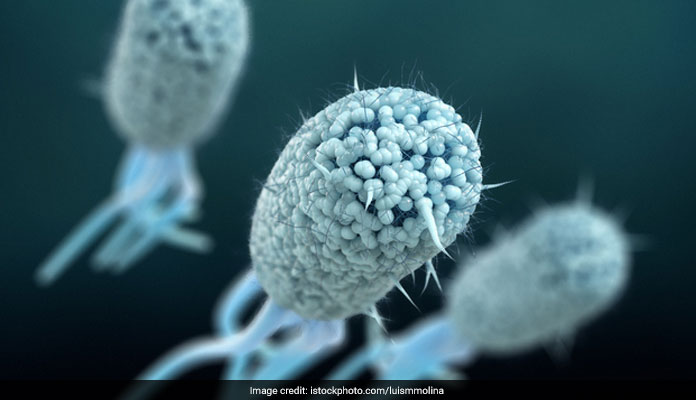Incomplete diagnosis and too strong drugs used to treat Urinary Tract infections can cause drug resistance in patients.

Wrong antibiotics to treat UTI can damage your kidney.
"Four to five patients suffer kidney failure due to UTI infection each year. It is either caused by the infection itself or heavy dosage of antibiotics administered to treat them," Dr Anant Kumar, chairman of the urology and kidney transplant department at Max Saket.
Indiscriminate use of antibiotics is making common infections like urinary tract infection (UTI) deadly. Urologists say five out of every 10 UTI patients are now requiring injectable drugs and, in some cases, even that fails to help. They are forced to use old injectable antibiotics with known toxicity to kidneys, for example Colistin, to save patients with multi-drug resistant UTI.
Close to 100 million people worldwide acquire UTIs each year, and despite antibiotic treatment, about a quarter develop another such infection within six months. UTIs cause painful, burning urination and the frequent urge to urinate. In serious cases, the infection can spread to the kidneys and then the bloodstream, where it can become life-threatening.
According to Dr Amrendra Pathak, senior urology consultant at the Sir Ganga Ram hospital, most UTIs are caused by gram negative bacteria such as EColi. When shed in the feces, the bacteria can spread to the opening of the urinary tract and up to the bladder, where they can cause problems. Conventional wisdom holds that UTIs recur frequently because bacterial populations from the gut are continually re-seeding the urinary tract with disease-causing bacteria. WHO today published its first ever list of antibiotic-resistant "priority pathogens", a catalog of 12 families of bacteria that pose the greatest threat to human health, which includes EColi.
The research and development of new antibiotics was a part of efforts to address the problem of growing global resistance to antimicrobial medicines.

"Till about 10 years ago, most UTIs were treatable with oral antibiotics. It was less toxic and easy on the pocket, too. But due to drug resistance many patients have to be admitted and they are put on injectable drugs that are five to six times costlier," he said. The doctors believe that self-medication is the biggest cause of drug resistant UTI. "Many people take antibiotics on their own if they experience burning sensation while urinating. Many doctors who are not even specialists also prescribe antibiotics without conducting a urine culture. All this triggers resistance," said an expert.
Dr Aditya Pradhan, senior urology and kidney transplant consultant at BLK hospital said there are three to four designated antibiotics for treating uncomplicated UTIs and powerful antibiotics are ought to be saved for treating UTIs in patients who are suffering from other complicated conditions like diabetes. But many physicians use the latter for quicker results, which leads to development of drug resistance.
In the past decade, no new antibiotic has been developed globally. Experts say pharmaceutical firms are focusing less on research for newer broad spectrum antibiotics as their shelf life is lesser compared to drugs meant for chronic illnesses."A new antibiotic may be used for limited period but diabetes drugs will be used for years by patients. Antibiotic may become useless if bacteria develops resistance to it. This is a major cause of slowness in drug discovery to fight antibiotic resistance," said an expert. Dr Marie-Paule Kieny, WHO's Assistant Director-General for Health Systems and Innovation says that antibiotic resistance is growing, and we are fast running out of treatment options. If we leave it to market forces alone, the new antibiotics we most urgently need are not going to be developed in time.
DoctorNDTV is the one stop site for all your health needs providing the most credible health information, health news and tips with expert advice on healthy living, diet plans, informative videos etc. You can get the most relevant and accurate info you need about health problems like diabetes, cancer, pregnancy, HIV and AIDS, weight loss and many other lifestyle diseases. We have a panel of over 350 experts who help us develop content by giving their valuable inputs and bringing to us the latest in the world of healthcare.














